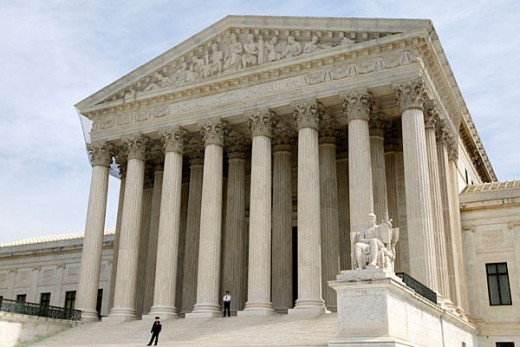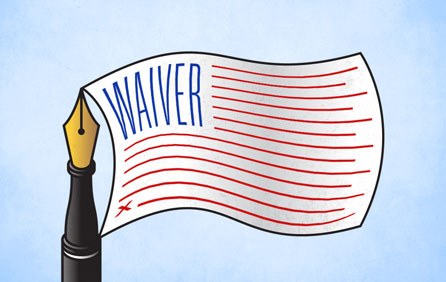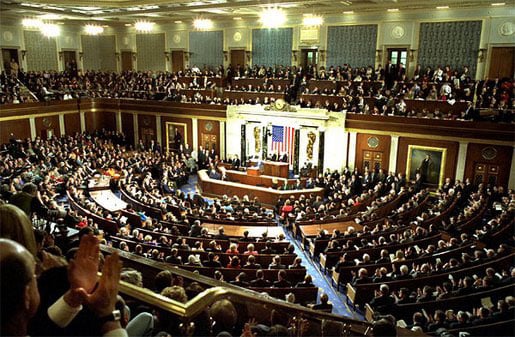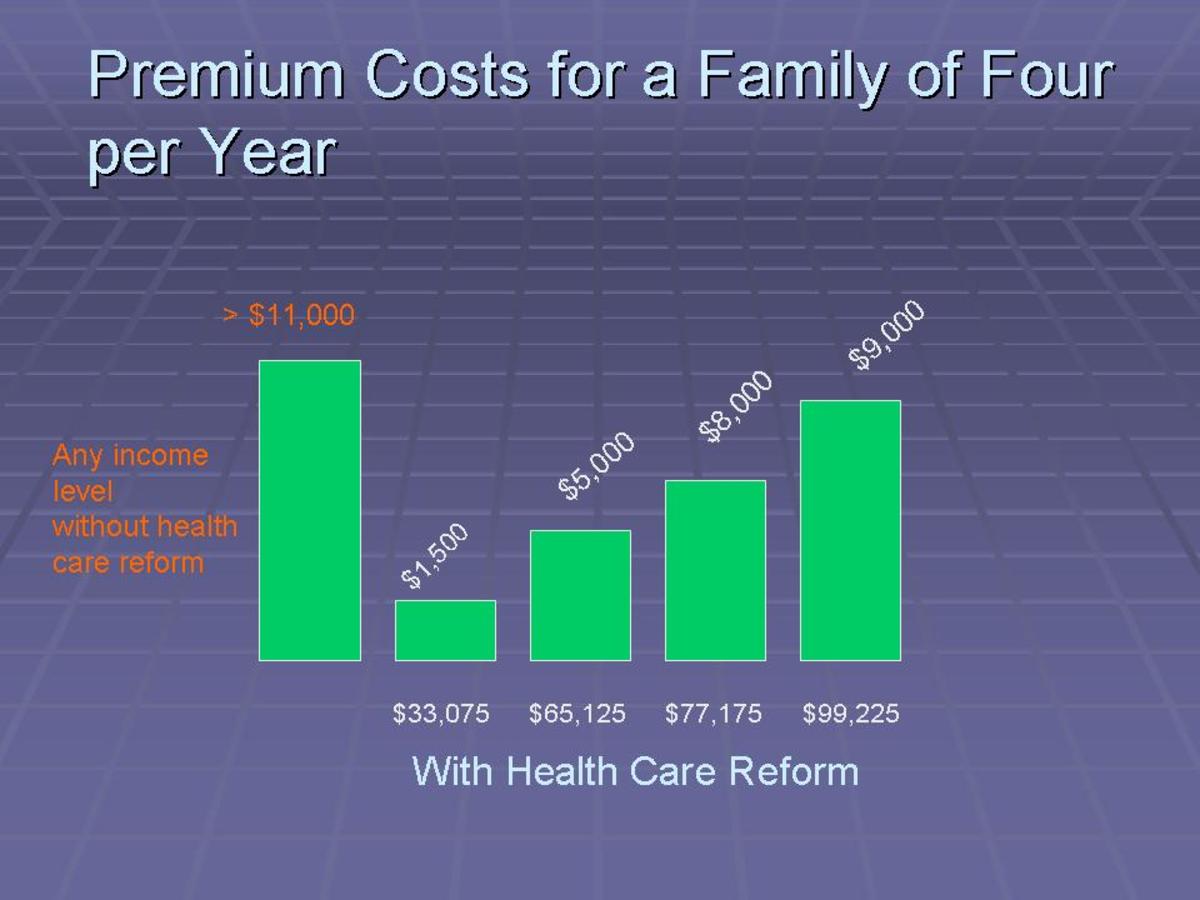One of the Reasons Why Obamacare is Unconstitutional - Part I
This essay was written by Andrew Herzog, Dominic Dougherty, and Nicholas Caluda for the University of Dallas 'Legal Environment' class. It was compiled back in December, 2011. Part I of III


Why the States Filed a Lawsuit
On November 14th, 2011, the United States Supreme Court acknowledged that it would hear arguments in March 2012 regarding the Patient Protection and Affordable Care Act[1]. Ever since the 2,000-page bill was signed into law in March 2010, twenty-eight states have sued the federal government over the constitutionality of the health insurance mandate[2]. That comes out to 164 million people, 53 percent of America's population, and 285 Electoral College votes that want to see the healthcare overhaul repealed. Florida, among thirteen other states that sued over Obamacare the day it was signed into law, stated on March 23rd, 2010 its reasons for the lawsuit:
The new law infringes upon the constitutional rights of Floridians and residents of the other states by mandating all citizens and legal residents have qualifying health care coverage or pay a tax penalty. By imposing such a mandate, the law exceeds the powers of the United States under Article I of the Constitution and violates the Tenth Amendment to the Constitution. Additionally, the tax penalty required under the law constitutes an unlawful direct tax in violation of Article I, sections 2 and 9 of the Constitution[3].

Twenty-four other states have since joined in the Florida lawsuit against Obamacare. Virginia and Oklahoma filed their own lawsuits. The following states have filed lawsuits: Virginia, Florida, South Carolina, Nebraska, Texas, Utah, Louisiana, Alabama, Michigan, Colorado, Pennsylvania, Washington, Idaho, North Dakota, South Dakota, Arizona, Georgia, Alaska, Nevada, Indiana, Mississippi, Wisconsin, Oklahoma, Wyoming, Ohio, Kansas, Maine, Iowa, and Nevada[4]. Since the lawsuit began, the D.C. Circuit Court[5] and the Sixth Circuit Courts of Appeals[6] have upheld the healthcare act. The Fourth Circuit ruled that the penalty for no insurance was essentially a tax and thus cannot be challenged until consumers begin to pay it[7]. The Eleventh Circuit, on the other hand, has shot down the individual mandate but said it could be severed from the rest of the bill.[8] Basically, the Eleventh Circuit concluded that Congress couldn’t mandate citizens to enter into contracts with private companies.

Insurance Waivers
As of June 16th of this year, 1,372 waivers from Obamacare insurance mandates have been granted by the Department of Health and Human Services[9]. The department claims that these waivers are for those whose premiums would rise by ten percent or more beginning in 2014 when the Affordable Care Act would prohibit “health insurance issuers and group health plan sponsors from imposing annual limits on the dollar value of ‘essential’ covered health benefits”[10]. Essentially, people are opting out of Obamacare because they know their current insurance plans will be regulated out of existence by 2014, where they would see an increase in premiums and a significant decrease in access to healthcare benefits. It makes sense that those who would suffer from the new bill could opt out and keep their current plans, but who are the companies and individuals opting out of the healthcare overhaul? According to the Department of Health and Human Services, nearly one million of the enrollees are union members. Unions like the SEIU, Aetna, United Federation of Teachers, and AFL-CIO, who all supported the bill, have now requested to opt out[11].
The waiver program has since been discontinued effective September 22nd, 2011. Ed Haislmaier of the Heritage Foundation said, “The first problem is that it appears HHS has exceeded its statutory authority in creating this waiver process. The statute does not explicitly grant HHS authority to waive the application of this provision”[12]. It would appear that more than one department of this administration has exceeded its legal authority. Why would those who supported the overhaul attempt to opt out and keep their current insurance plans? One reason perhaps could be that they believe Obamacare is detrimental to their wallets, health, and security.

Congressional Opinions
Several Congressmen have voiced their opinions on the matter. On February 16th, 2011, Rep. Cliff Stearns, R-Fla., said, "Obamacare was sold as all benefit — no downside. Now 2.5 million people literally need to be protected from the devastating effects of Obamacare"[13]. Republican House Speaker, John Boehner, mentioned back in March 2011 “we will do whatever we can to ensure Obamacare is never fully implemented. A fundamental promise was broken when this government takeover of health care was pushed through. That day, that week, the people said one thing, and their government did another”[14]. Nancy Pelosi, D-Calif., is remembered for saying, “we have to pass the bill so that you can find out what is in it”[15]. When asked where Congress had the constitutional right to mandate health insurance, she responded with, “Are you serious?”[16] Budget Committee Chairman Paul Ryan, R-Wis., said in January 2011 that Obamacare will actually increase the budget deficit by at least $700 billion over ten years[17]. Fred Upton, R-Mich., chairman of the House Energy and Commerce Committee, said, “I believe we have to start over on long-term care reform. But first, we must erase a program that we know will not work; a program that was never structured to work, and that we could never afford”[18]. Each of the 2012 GOP Presidential candidates has declared their approval of repealing Obamacare as well[19]. These are just a few of the most prominent congressmen. Many more have shown disdain for the Affordable Care Act. Within the past couple of days, a couple of new interesting developments have taken place.
Barney Frank, D-Mass., announced on Tuesday his support for the repeal of the Independent Payment Advisory Board, the 15-member bureaucratic board appointed by President Obama to make Medicare payment decisions for millions of Americans[20]. This is especially significant after he had announced he would not run for office again, so why did he wait this long? Furthermore, on Wednesday, the House Energy and Commerce Committee voted to repeal a portion of Obamacare called the CLASS Act, an entitlement program that reduced the apparent cost of Obamacare by $80 billion[21]. Even North Dakota Democratic Sen. Kent Conrad, chairman of the Senate Budget Committee, called it a “Ponzi scheme of the first order, the kind of thing Bernie Madoff would be proud of”[22].
Continues with Part II...








